What is Title Insurance and why do I need it?
A title insurance policy insures the status of title. Title insurance policy is issued by title insurance companies. Such policy protects the person named as insured on the title policy against financial loss related to the title, as well as the cost of defending the title in court, should any undiscoverable defects in title arise that would not have been discoverable during the title search and examination of the public records.
What are different forms of holding Title?
Below you will find common methods of holding title to the property, or rather, owning property:
a) Sole owner
This way of holding title is pretty self-explanatory. You hold title as a sole-owner when you purchase property in your name only, as an individual.
b) Joint Tenants
Under this form of ownership, title can be held in multiple names. Each joint tenant owns an undivided interest in the entire property. Ownership shares are presumed to be equal unless the deed states otherwise. If one joint tenant dies, that person’s interest automatically is transferred to the remaining joint tenants. Furthermore, any joint tenant during his/her lifetime, may freely transfer his/her interest in the property to another party. However, such transfer during a joint tenant’s life will terminate joint tenancy and create a tenancy in common.
c) Tenants in Common
This form of ownership allows title to the entire property to be held in multiple names. Each tenant in common can freely transfer his/her interest to another party. However, unlike in Joint Tenancy, upon one tenant’s death, his/her respective ownership interest does not automatically transfer to other co-tenants, but rather transfers to the deceased tenants’ heirs. Equal ownership among tenants is also presumed unless otherwise specified in the deed.
d) Tenants by the Entirety
This form of holding title is reserved for validly married couples only. Under this form of ownership, neither tenant may transfer his/her interest to a third party or encumber the property without both tenants joining in the deed or mortgage. Upon the death of one party, the property automatically becomes the sole property of the surviving spouse.
What are the most commonly used forms of deeds?
a) General Warranty Deed
This type of deed is “the best” deed. It is most commonly used and it guarantees the seller’s good title before the conveyance, and that warranty continues after the conveyance. The deed also contains such warranties by the seller as warranty of good title, freedom from encumbrance other than specifically identified, and right of possession. The warranty includes claims arising during or prior to the seller’s ownership.
b) Special (or Limited) Warranty Deed
This type of deed provides less extensive warranties from the seller. Under this type of deed, seller warrants only against claims arising during the period of the grantor ownership but does not warrant against any claims arising prior to the grantor’s ownership of the property.
c) Quit Claim Deed
This deed contains no warranties of any kind and conveys only the interest held by the grantor. This type of deed is most often used in a non-sale transaction such as transfers between spouses.
What is the purpose of “recording” a deed?
The Deed is a document that transfers ownership of the property from seller to buyer. At the closing, the seller, in exchange for a specified amount of money, tenders a copy of the deed to the purchaser. The delivery of the deed completes transfer of interest in real estate. Following the closing, the deed should be recorded with the county clerk in the county where the property is located. Recording the deed with the county clerk gives notice to the public that the purchaser now has an ownership interest in that particular property.
What is a survey and why do I have to purchase one?
A survey is a drawing of the property which, depending on what type of survey is requested, usually shows any improvement to the property, the boundary lines of the property and encroachments, if any, affecting the property. In residential transactions, a survey is often required by the lender as this is the only document that confirms that the legal description in the deed matches the legal description of the property the buyer is purchasing.
How is a cooperative different from a condominium?
a) Condominium
When you purchase a condominium unit, you legally own a particular unit in a multiple unit building. Under this type of an arrangement, you have a share and a right to use common areas such as hallways, elevators, gardens, swimming pools, etc. that are part of a condominium complex. You are responsible for paying association dues for maintenance expenses for the common areas of the condominium building.
b) Cooperative
On the other hand, when you purchase a unit or an apartment in a cooperative ownership structure, you do not own your specific unit in a building in the same way you own a condominium unit, but you own stock in the corporation that owns the building and all the apartments. You lease your apartment from the corporation of which you own stock and you are a shareholder. As a shareholder, you have the right to participate in the election of the Board of Directors who manage the cooperative on behalf of the corporation.
What is an Escrow and an Escrow Agent?
An escrow agent is a third party (designated by all the parties involved) to hold funds or documents for a certain period of time or until a certain date. Once that time is up, the escrow agent hands over the funds or documents to the earlier designated party. Typically, the escrow agent is the title company and the funds and documents held relate to the sale and purchase of real estate. In Illinois, it is typical to hold the real estate closing through an escrow agent that collects and distributes all funds and documents relating to the closing according the specific written escrow instructions.


